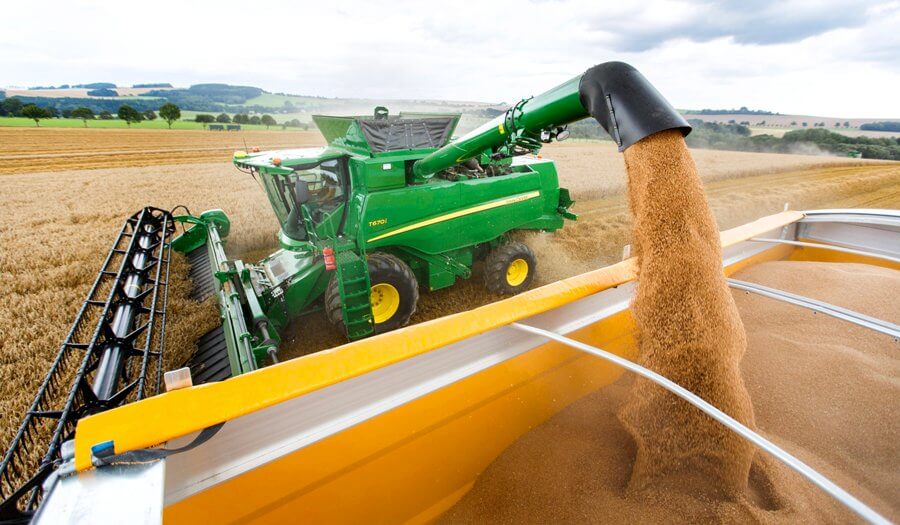Sergey Feofilov commenting the results of the past agricultural year in Ukraine and expectations for the upcoming year 2020
17 December, 2019 at 11:12
At the end of 2019, we turned to UkrAgroConsult Director General Sergey Feofilov with questions about the past year’s results in Ukraine’s agricultural sector and expectations for the upcoming year 2020.
- What do you expect from the upcoming year 2020?
- 2020 will not be the easiest year. Ukrainian goods will quite likely face tougher competition in many markets. It will be necessary to protect and expand the positions gained by Ukrainian grains in Asian and African markets and compete with Russian sunflower oil in the markets of India and China. Solving these tasks rests upon steady growth of agricultural production in Ukraine.
Of course, I expect the Ministry of Agrarian Policy and Food of Ukraine to resume its work as a separate structural unit under any other name – ‘the Ministry of Agricultural Policy’ or ‘the Ministry of the Agricultural Sector.’ By any measure, having such a government body is important for an agricultural nation.
However, the most interesting developments will unfold around the land market. The rules of the game in this market will likely become clear in the new year – this is an extremely important aspect.
Land is not something created by humans, land is impossible to manufacture. That is why it is necessary to secure movement of land parcels to the most efficient owner. And I understand efficiency as a comprehensive notion, i.e. long-term preservation of the soil quality – ideally forever. The new law on land must contain, first of all, criteria for determining land use efficiency, including social relationships, and all further legal actions resulting from these assessments. It is a secondary question who the land owner will be. Unfortunately, lances are now broken only over minor aspects of land relations, and I surely expect that the fundamentals of the regulation of land transactions will be addressed.
- Mr. Feofilov, which achievements of Ukraine’s agricultural sector in 2019 would you like to point out?
- Growth in export revenues seems to be an interesting, significant point. In the first three quarters of 2019 alone, foreign currency revenues from Ukrainian exports of the three main grains (wheat, barley, corn) totaled USD 6.8 Bl, or 43% more than at the same time last year. In 2018, Ukraine increased wheat shipments to the markets of Asia and Africa, stepped up corn deliveries to Europe and China, and set a new record in exports of sunflower oil.
However, one should take into account that grains and crude vegetable oils still account for the bulk of agricultural exports. Moreover, our analysis indicates that physical export volumes increase much faster than foreign currency revenues. Basically, Ukraine remains a huge tolling workshop: input supplies are funneled into the country to produce grain and oilseed raw materials, which are then processed abroad and most of the profit margin is kept there. Yes, there is much talk about the necessity to overcome this situation, but little is really done. Changes are possible in case of support to the Ukrainian processing industry and promotion of the Ukrainian national trade brand.
- In the previous years, logistics were mentioned as the weakest link in the grain chain. Are there any developments in this field?
- The improvement of the situation is evident. Traders buy grain carriers: their private fleet has doubled in 2019 alone and thereby the acute shortage of grain cars has been overcome. The segment of river transportation also boasts achievements, as the volume of grain shipments by river was almost twice as high as in 2018. In view of stable export demand for Ukrainian grains, it is essentially important to further develop inland logistics, since new problems have surfaced. For instance, the efficiency of rail transportation declines because of shortage of locomotive traction, though the issue of railcars seemed insoluble as recently as 2018.
- In the global business sphere, the most discussable point was probably the trade war between the U.S. and China. How has this situation affected Ukraine?
- Yes. The trade war’s influence was present, but rather indirect, and it should not be overestimated. The war has caused changes in much larger trade flows. China purchases more soybeans, meals and meat from alternative suppliers, not from the U.S., whereas Ukraine traditionally sells these products to other buyers. Further opening of the Chinese market, along with other promising markets, requires harmonized certificates, stability of trade ties, unchallenged reputation, and enormous work.
- This past year 2019 featured the company’s anniversary – UkrAgroConsult has been in the market for 25 years now. What were the distinguishing features of this year?
- 2019 was a successful year for UkrAgroConsult. We improved the company’s performance, discovered new consumers, won a whole number of tenders issued by venerable international companies and organizations.
Of course, success of UkrAgroConsult in many respects depends on the development of the Black Sea agricultural sector. In view of macroeconomic stabilization, investors pay an increasing attention to the region. In 2019, we noticed that companies aimed at better understanding of the investment climate become fairly more interested in market studies.
Ukraine’s priority position in certain domains is increasingly recognized by international players. For UkrAgroConsult, the arrival of new players to the Ukrainian market implies the emergence of new customers and the implementation of new projects.



